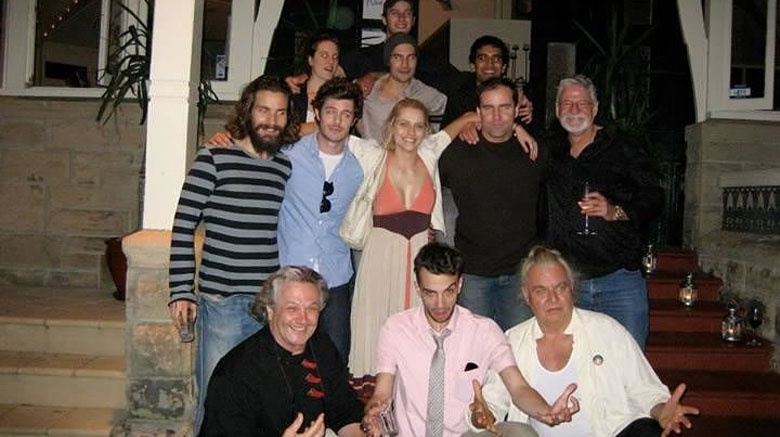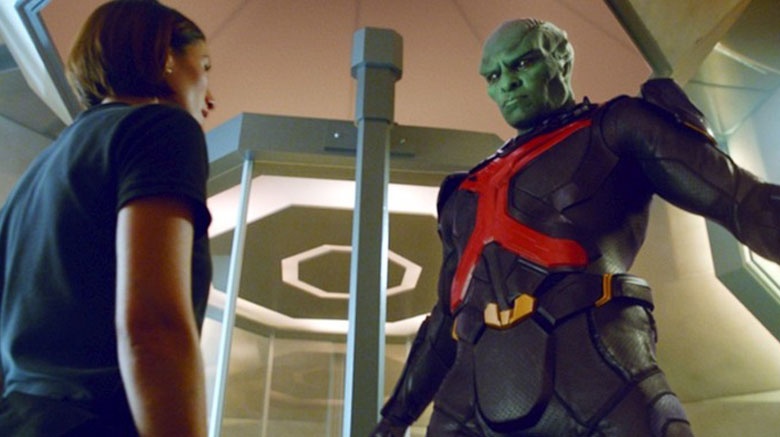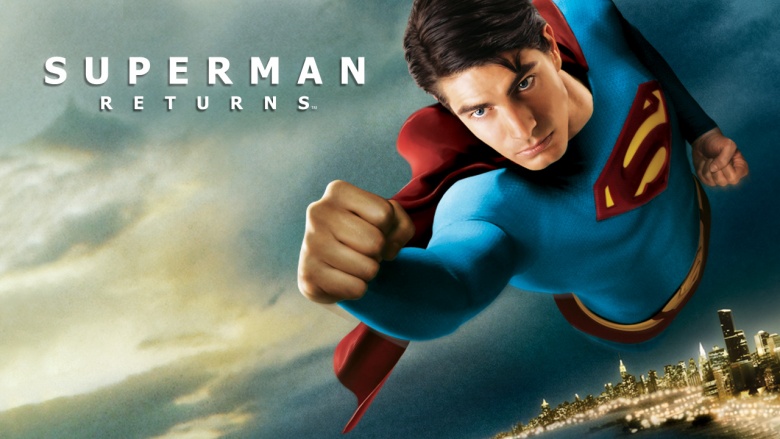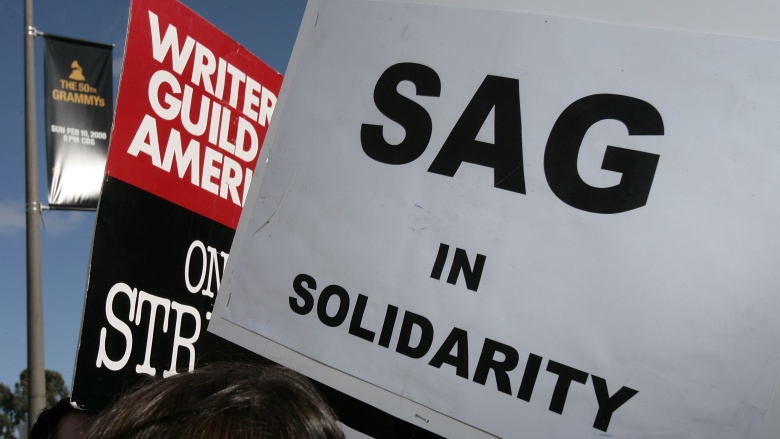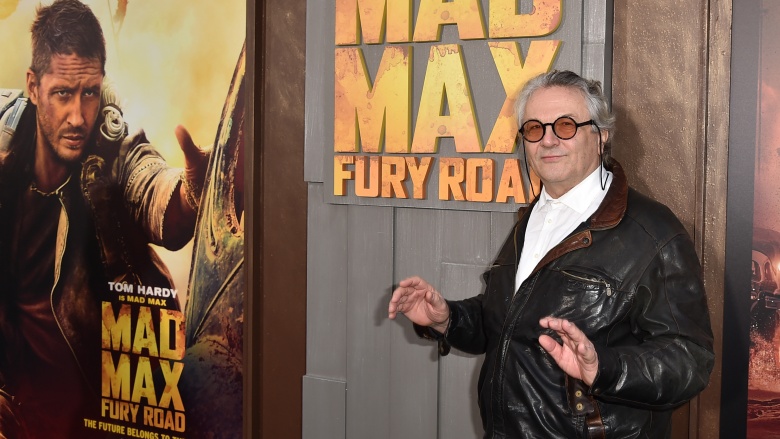Why George Miller's Justice League Mortal Was Never Made
With Man of Steel and Batman v Superman as its predecessors, there's no longer a question of whether or not the world will ever get a live action Justice League movie. It will hit theaters in 2017 with Zack Snyder once again at the helm, but this will not be Warner Bros' first attempt at putting DC's answer to The Avengers on the big screen. In 2007, Mad Max: Fury Road director George Miller was tapped to assemble the Super Friends, and he came extremely close to getting it done. Let's see why Justice League Mortal was unable to leave the Watchtower.
The cast was shaky at best
With a crew of fairly unknown actors, particularly in the seminal roles of Batman and Superman, Justice League Mortal was already facing an uphill battle. Keep in mind, at the time of its pre-production, JLM was joining the company of Christopher Nolan's emerging Dark Knight trilogy and Bryan Singer's Superman Returns, which loosely fell into the continuity of the Christopher Reeve films. Neither director wanted anything to do with this version of Justice League, a sentiment best summed up when Christian Bale said "It'd be better if [Justice League: Mortal] doesn't tread on the toes of what we're doing," according to We Minored In Film. As a result, JLM was stepping outside both of those popular universes to start fresh with an all-new team of young and barely recognizable stars.
The casting in itself was questionable, with choices like Armie Hammer as Batman and Jay Baruchel as Maxwell Lord (via ComicBookMovie). The hindsight of having seen him try to carry The Lone Ranger or The Man From U.N.C.L.E. as an action hero tells us all we need to know about how Hammer's Batman would have turned out. According to Def of Geek, the film also would have starred Adam Brody (The Flash), Common (Green Lantern), D.J. Cotrona (Superman), Megan Gale (Wonder Woman), Hugh Keays-Byrne (Martian Manhunter), Santiago Cabrera (Aquaman), and Zoe Kasan as Iris Allen. Baruchel, as funny as he is, barely moves the needle in terms of menacing comic book villainy.
The script needed work
Granted, Justice League Mortal was gearing up long before Iron Man rocketed Marvel beyond DC with their yet-to-lose strategy of introducing each character prior to their big ensemble pic. Anyone could see how confusing a comic book movie with 11 heroes and no origin stories might be. DC must have seen the writing on the wall, which probably contributed to JLM getting force-fed the Kryptonite.
According to Den of Geek, Justice League Mortal's script jumps right into a world where the Justice League has all but secured world peace, Batman has secretly set up surveillance on the entire team, and Superman basically takes a backseat to the heroics—leaving The Flash as the main character. So, Batman's a sort-of bad guy, Superman's around but not doing much, and the audience is supposed to believe that the rest of the team is taking cues from the guy who runs fast? That probably makes sense to an avid comic fan, but general audiences wouldn't understand it at all. Are the casual fans, who just want to see Superman fly and Batman drive the Batmobile, going to just accept a character like J'onn J'onzz (aka the Martian Manhunter) with no backstory at all? Not likely.
The budget was out of control
With a planned budget of $220 million, Justice League Mortal was already burning up the balance sheet before the cameras ever rolled. Jay Baruchel told Digital Spy it could have gone up to $300 million. Adam Brody, who was cast as The Flash, echoed the same figure in interviews after the film collapsed according to Moviepilot. Almost everyone involved, cast and crew, spoke of George Miller's plans to push the DC Universe farther than it has ever gone, and with elaborate concept art as well as an action-heavy script, that spells nothing but trouble for the number crunchers. Just one year prior, Superman Returns fell way under Warner Bros' expectations of a $500 million dollar domestic box office haul. With a similar budget, JLM was being compared to Bryan Singer's letdown before it ever had a chance to compete.
The Writers Guild of America strike
The Writers Guild of America strike that started in 2007 and lasted into 2008 is always cited as one of the key factors that sunk Justice League Mortal, most notably by George Miller himself in an interview with The Hollywood Reporter. The script—though fiercely loyal to the source material and sure to be a hit with comic fans—needed a rewrite to be more relatable for general audiences. Screenwriters Kieran and Michele Mulroney would have gladly reshaped it accordingly, except they weren't allowed to. Due to the terms of the strike, WGA members were prevented from working on any projects that were in production at that time. This immediately put JLM on a shelf, as if Lex Luthor himself orchestrated the movie's demise.
That pesky Australian tax rebate
After the writers strike ended, JLM almost immediately faced another massive roadblock. Since the financial backend was already a concern, George Miller wisely attempted to take advantage of an Australian film incentive that could have landed the production a lucrative 40 percent rebate if they chose to shoot down under. Unfortunately, as Miller told The Hollywood Reporter, a commission determined that although Miller and several of the actors were Australian, the film was primarily in American control, and therefore not subject to the rebate. Furious, Miller moved the film's production to Vancouver, which meant not only another significant delay, but also that the pressure to perform at the box office just once again increased by 40 percent.
If all of this wasn't enough, The Dark Knight premiered in the summer of '08, obliterating records, and arguably refocusing the tone and approach to all of DC's cinematic properties. Between the writer's strike delay, the failure to secure the tax incentive, and the explosive success of a Batman movie completely separate from JLM's own story, the Super Friends were dismissed. George Miller is still attached to the upcoming Justice League: Part One as a producer, which goes to show that whatever vision he had for the team of superheroes hasn't been entirely cast aside. Had George Miller completed Justice League Mortal, he may never have gotten around to Mad Mad: Fury Road, so sometimes these things work out for a reason.

